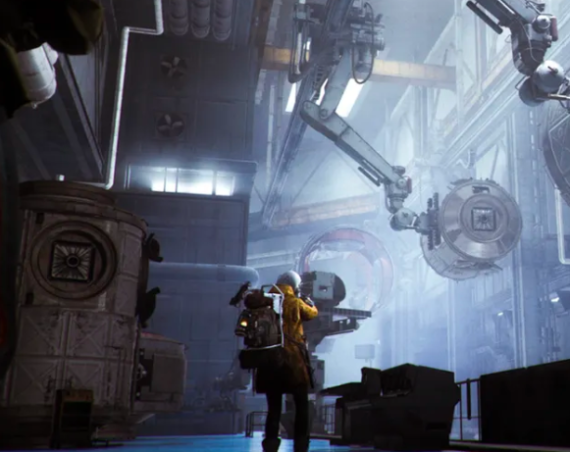
Why Takashi Iizuka and Sonic Team Aren’t Pursuing a Sonic Adventure Remake
In the current gaming landscape, remakes and remasters have become increasingly popular, breathing new life into classic titles. However, Takashi Iizuka, head of Sonic Team, recently shared insights revealing why a remake of the iconic Sonic Adventure series isn’t in development. According to Iizuka, the team prefers to allocate their resources toward creating fresh gaming experiences rather than revisiting earlier projects.
The Focus on Innovation Over Remakes
During an interview with the BBC regarding the recent launch of Sonic Racing: CrossWorlds, Iizuka emphasized the studio’s commitment to building “richer, more complex, more interesting worlds” by leveraging new technology. This strategic direction showcases Sonic Team’s intent to use their talents and tools to innovate rather than remake what existing players have already experienced.
Insights from Takashi Iizuka
- Developers face limited time and energy to bring games to life.
- Rather than remaking an older title, the team focuses on brand-new projects that provide novel experiences.
- Investment in new game development aims to captivate and surprise players with fresh narratives and gameplay mechanics.
As Iizuka noted, “Instead of using all that time and energy to remake a game that people have already experienced, we could make a brand new game instead.” This approach reflects a broader trend in the gaming industry, where innovation and new intellectual properties often take precedence amid increasing competition.
Sega’s Broader Strategy and New Titles
Sonic Team’s perspective aligns closely with Sonic’s publisher, Sega. The company has recently opted to revive and develop new entries in cult classic series such as Crazy Taxi, Jet Set Radio, and Shinobi, rather than focusing primarily on high-profile remakes of their early 3D franchises. This strategic direction highlights Sega’s willingness to invest in new content while honoring legacy franchises with fresh installments.
Despite this, Sega has not completely abandoned remakes. For instance, the highly anticipated Persona 3 Reload was published under Sega’s direction, illustrating that remakes remain part of their portfolio — when there’s strong potential to engage both new and returning audiences. Additionally, last year brought Sonic x Shadow Generations, a fan-favorite title built with new content but embracing nostalgic elements, signaling that classic franchise reverence continues.
Availability of Sonic Adventure
For fans eager to revisit Sonic Adventure, the original game remains available on modern platforms such as Steam and Xbox Series X|S, ensuring access even without a remake.
Industry Trends: Remakes vs. New Games
While remakes generate significant sales — for example, remakes like Resident Evil 2 and The Legend of Zelda: Link’s Awakening have garnered widespread acclaim and commercial success — the balance between remakes and original titles remains a nuanced industry question.
According to a 2024 report by Newzoo, approximately 15% of the gaming market revenue stems from remastered or remade classic games. However, consumer appetite increasingly favors new IPs and innovative gameplay, especially among younger generations. Developers must therefore carefully assess where best to invest their limited time and resources.
Case Studies and Examples
- Final Fantasy VII Remake Series: Square Enix revitalized an established classic with a multi-part remake, balancing nostalgia with new gameplay elements. The project took more than five years, showcasing the resource intensity of remakes.
- Crash Bandicoot N. Sane Trilogy: This successful remake maintained core gameplay while updating graphics, but some original creators have noted subtle timing and feel differences that altered player experiences.
- Epic Originals: Games like Hades II and Ghost of Yotei illustrate strong market demand for innovative content, often leading to critical and commercial success.
Conclusion: Sonic Team’s Commitment to New Experiences
Takashi Iizuka and Sonic Team’s decision to focus on creating new, engaging games rather than remaking Sonic Adventure reflects a forward-looking philosophy aimed at sustaining long-term creative vitality. By investing time and effort into developing innovative worlds and fresh gameplay experiences, Sonic Team hopes to captivate both longstanding fans and new players alike.
This approach aligns with broader trends in gaming, balancing reverence for classic franchises with the vibrant drive for innovation that defines the industry today.


